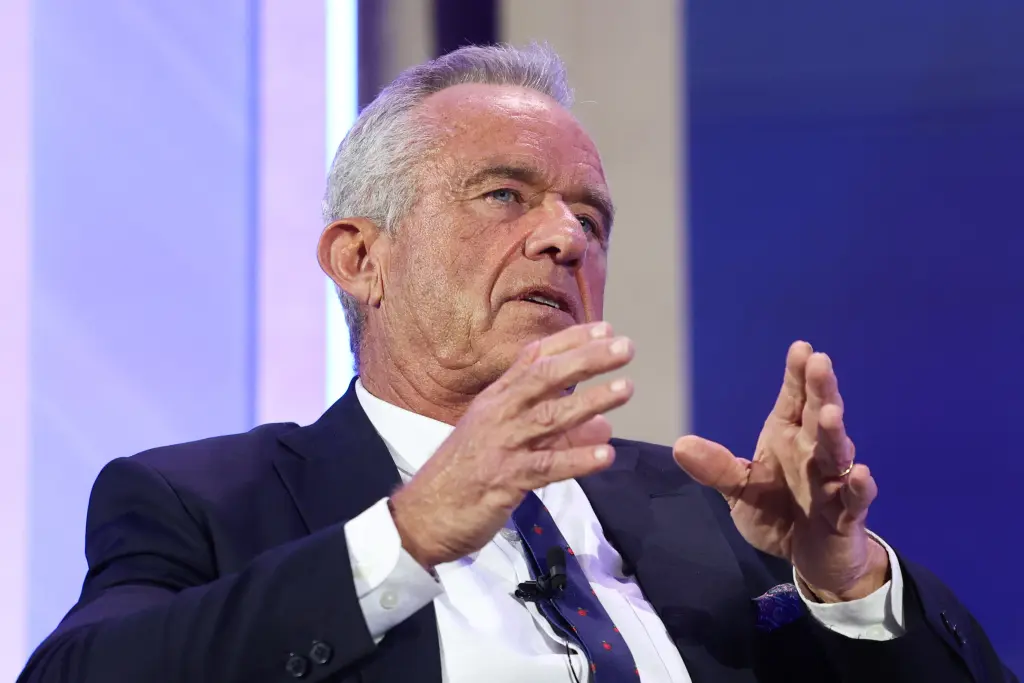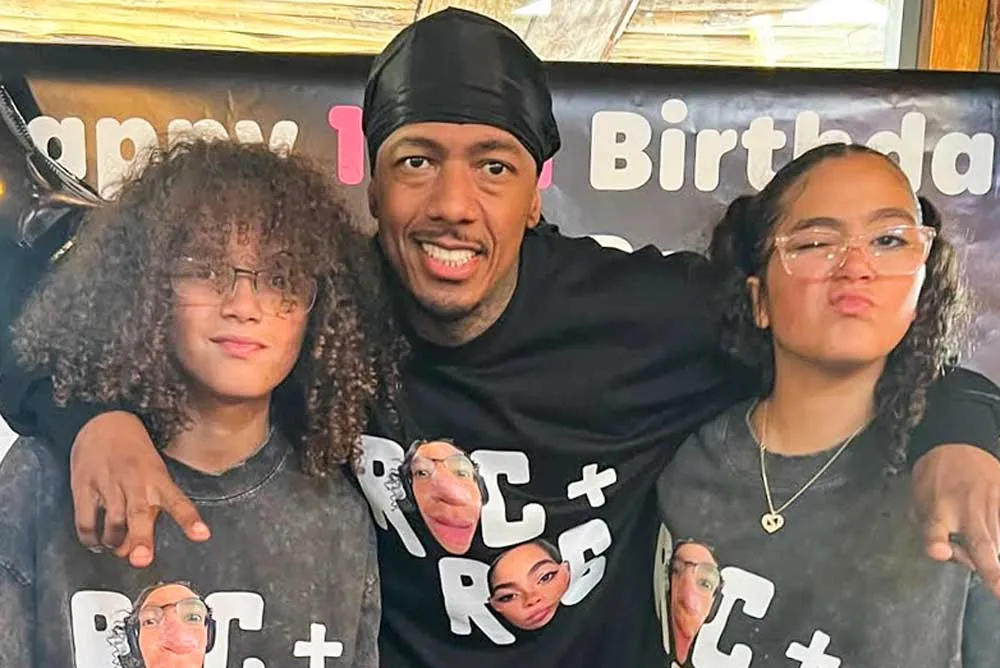New Memoir Reveals That Robert F. Kennedy Jr. Told Journalist Olivia Nuzzi He Used DMT, Called Her “Livvy,” Wanted Her to Have His Baby — Here’s What the Book Says
In her forthcoming memoir, American Canto, journalist Olivia Nuzzi presents a startling portrait of a relationship she describes as emotional, intense and digital, but never physical, with Robert F. Kennedy Jr. — and, within that story, she makes the dramatic claim that Kennedy told her he used the psychedelic drug dimethyltryptamine (DMT), a substance often associated with powerful near-death-style experiences.

Nuzzi, now 32, says the connection with the 71-year-old Kennedy began after an interview she conducted of him in 2023 when he was a presidential candidate. According to her account, what started with conventional journalistic engagement evolved into late-night phone calls, private exchanges and expressions of affection she had never anticipated. Her book reveals that Kennedy told her he loved her, used the pet name “Livvy,” wrote her poems and, astonishingly, said he wanted her to have his child.
Central to the narrative is her claim that Kennedy confided he still used psychedelics, including DMT, despite decades of publicly described sobriety. Nuzzi writes he said he smoked DMT, a powerful molecule known to induce hallucinatory experiences likened to crossing into another dimension or approaching death. She also admits she told him she “liked uppers” and had taken Adderall, a confession that underlines the candid and unusual nature of their exchanges.
Kennedy, who serves as U.S. Health and Human Services Secretary and is married to actress Cheryl Hines, has denied any romantic involvement with Nuzzi. His spokesperson has previously stated that the two “only met once in his life for an interview.” Nuzzi’s account, however, suggests a far more complex private dynamic that she says ultimately derailed her career and personal life. In late summer 2024, the relationship became public, leading to her being placed on leave at New York Magazine and the collapse of her engagement to fellow journalist Ryan Lizza.

What makes the claim of DMT use particularly salient is Kennedy’s public persona and policy influence. As HHS Secretary, Kennedy is in a position of broad public responsibility, including on health and substance-use regulation. His alleged admission of using a psychedelic that remains federally controlled raises ethical questions about disclosure, judgment and the role of public officials. Observers note the tension between an image of sobriety and the memoir’s counter-narrative. At the same time, Nuzzi frames the relationship not as a scandal alone, but as a transformational emotional experience she could not ignore. She writes that the relationship, though digital, felt “real” in ways that surpassed traditional definitions of intimacy.
The memoir release is set for December 2, 2025. Nuzzi says she wrote much of it in secret while hiking in Los Angeles, working through her reflections on what happened and what it meant. The book does not name Kennedy directly but makes his identity unmistakable throughout the narrative.
Readers will find in the pages of American Canto vivid scenes: Nuzzi recounts watching Kennedy floss his teeth late at night, noticing a dopp-kit overflowing with prescriptions, talking about his favorite parts of her body (he chose her mouth, she said), and exploring conversations about the role of psychedelic experience in his life. These details are framed not as salacious gossip, but as markers of a relationship she argues shaped her own sense of self during a critical career phase.
Yet the memoir also brings to light serious issues about journalism, conflict of interest and professional boundaries. At the time of their exchanges, Nuzzi was reporting on Kennedy’s presidential campaign for New York Magazine. She later acknowledged that the failure to disclose the personal relationship represented a violation of her publication’s ethics policies. The magazine itself noted that “had the magazine been aware of this relationship, she would not have continued to cover the presidential campaign.”
In the wake of the public revelation of the relationship in 2024, Nuzzi’s career was disrupted: the magazine placed her on leave in September, and she parted ways with the publication in October. She has since taken a role at Vanity Fair as West Coast Editor, but the memoir release signals a return to center stage amid substantial controversy.
Kennedy’s camp, meanwhile, remains largely silent on the new claims. His wife Cheryl Hines publicly called the allegations “chaos and rumors,” stating her trust in Kennedy’s denial and dismissing the broad narrative as part of the media overload surrounding his 2024 campaign.
From a broader perspective, the story taps into shifting public attitudes about psychedelics and wellness. In recent years, psychedelic substances including DMT, MDMA and psilocybin have gained attention in scientific studies for potential therapeutic use. Yet the alleged private use of such a strong substance by a high-ranking health official places that conversation into sharp public view. Nuzzi’s book does not purport to judge Kennedy’s choices, but frames his admission as part of the emotional terrain she traversed—one of intimacy, secrecy and disclosure.
Importantly, while the memoir offers vivid detail, it remains a single side of a complex story. Kennedy has not issued a full public response to the claims about DMT use or the deeper emotional bond with Nuzzi; his longstanding denial of any physical affair remains unchanged. The lack of outside corroboration for every detail means readers must weigh the memoir within the limits of personal narrative and memory. Nuzzi herself acknowledges in the book that she understands readers will differ in how they interpret her account.
In the end, the memoir raises enduring questions: What are the responsibilities of political figures who engage intimately, even digitally, with journalists covering their campaigns? How should public officials handle personal disclosures that may affect their credibility? And how do individuals emerge from deeply emotional relationships that straddle professional and personal boundaries? For Nuzzi and Kennedy alike, the reverberations of this story are not merely private—they are public, with implications for careers, reputations and trust.
As December approaches and American Canto becomes available to readers, the conversation is sure to intensify. The memoir will not only revisit a dramatic chapter of modern American journalism and politics, but will also open new dialogues about addiction, power, emotion and the human experience behind the headlines. Whether readers view the claims as courageous truth-telling or as controversial self-exposure, the chapter now turns to us, the public, to decide how the story fits within the larger narrative of those who shape our health policy, media landscape and cultural discourse.



